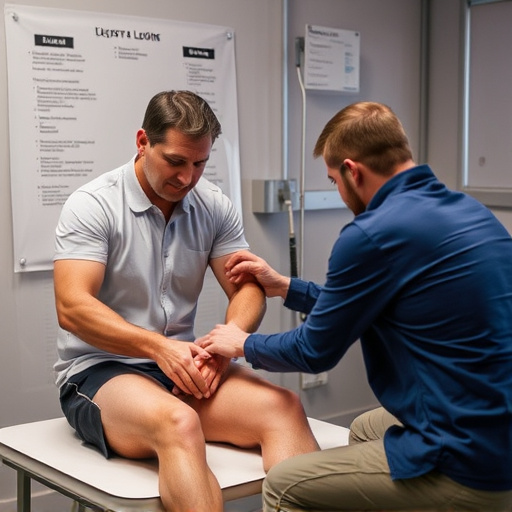Tricare Authorized Providers (TAPs) are healthcare specialists contracted to offer primary care to military personnel and families, managing chronic conditions through personalized techniques like chiropractic care. They serve as primary contact points for preventive services, health education, and referrals to specialists, coordinating care among professionals. Efficient management practices, communication strategies, and technology integration enhance patient outcomes, satisfaction, and tailored care within the Tricare system.
“Unraveling the intricacies of primary care management within the Tricare network, this article explores the pivotal role played by Authorized Providers. These healthcare professionals are the cornerstone of efficient patient care, ensuring seamless coordination and access to quality services. We delve into their multifaceted responsibilities, from patient assessment and treatment planning to managing chronic conditions. By examining best practices, we highlight strategies that optimize care delivery, fostering healthier communities and enhancing patient outcomes in the context of Tricare-authorized provider partnerships.”
- Understanding Tricare Authorized Providers
- Roles and Responsibilities of Primary Care Managers
- Efficient Management Practices for Optimal Patient Care
Understanding Tricare Authorized Providers

Tricare Authorized Providers (TAPs) are healthcare professionals who have been specifically contracted and certified by Tricare to offer medical services to eligible beneficiaries. These providers play a pivotal role in ensuring accessible and quality primary care for individuals enrolled in the Tricare program, particularly those serving active-duty military personnel and their families. TAPs encompass a diverse range of specialists, including physicians, nurses, chiropractors, and other healthcare experts.
Among the various services offered, many Tricare Authorized Providers specialize in chronic pain management, utilizing techniques such as chiropractic treatment and muscle recovery programs to alleviate long-term discomfort. This tailored approach ensures that beneficiaries receive comprehensive care that caters to their unique needs, promoting overall well-being and enhancing quality of life.
Roles and Responsibilities of Primary Care Managers

Primary Care Managers, often referred to as Tricare Authorized Providers, play a pivotal role in managing and coordinating patient care within the Tricare system. Their responsibilities encompass a wide range of tasks designed to ensure comprehensive and efficient healthcare delivery. These providers serve as the first point of contact for patients, offering primary prevention services, health education, and routine screenings. They manage chronic conditions, refer patients to specialists when necessary, and coordinate care among various healthcare professionals.
Moreover, these managers are tasked with facilitating effective communication between patients, caregivers, and other medical service providers. They also oversee the process of authorizing and managing benefits under the Tricare program, ensuring that services rendered align with policy guidelines. By integrating whiplash treatment plans, pain management strategies, and headache relief protocols into their practice, they contribute to enhancing patient outcomes and overall satisfaction within the healthcare system.
Efficient Management Practices for Optimal Patient Care

Efficient management practices are the cornerstone of optimal patient care for Tricare authorized providers. By implementing streamlined processes and evidence-based protocols, healthcare professionals can significantly enhance service delivery and improve patient outcomes. This includes proactive communication strategies that facilitate timely consultations, regular follow-ups, and clear education on self-care measures. For example, a Tricare authorized provider might utilize telemedicine to offer pinched nerve relief or perform spinal adjustments remotely, especially in rural areas with limited access to specialized care.
Furthermore, integrating technology into routine practice allows for precise record-keeping and efficient tracking of patient progress. This digital approach ensures that providers can quickly identify trends, such as recurring lower back pain issues, and tailor interventions accordingly. Such innovations not only improve the overall patient experience but also enable authorized Tricare providers to offer more personalized care while managing their practices with greater efficiency.
Tricare authorized providers play a pivotal role in ensuring efficient primary care management, delivering optimal patient outcomes through their specialized knowledge and dedicated practices. By understanding their roles and responsibilities, these healthcare professionals can navigate complex medical landscapes, foster strong patient relationships, and contribute significantly to the overall well-being of their communities. Embracing innovative management strategies further strengthens their impact as they strive to provide high-quality care in today’s evolving healthcare environment.














